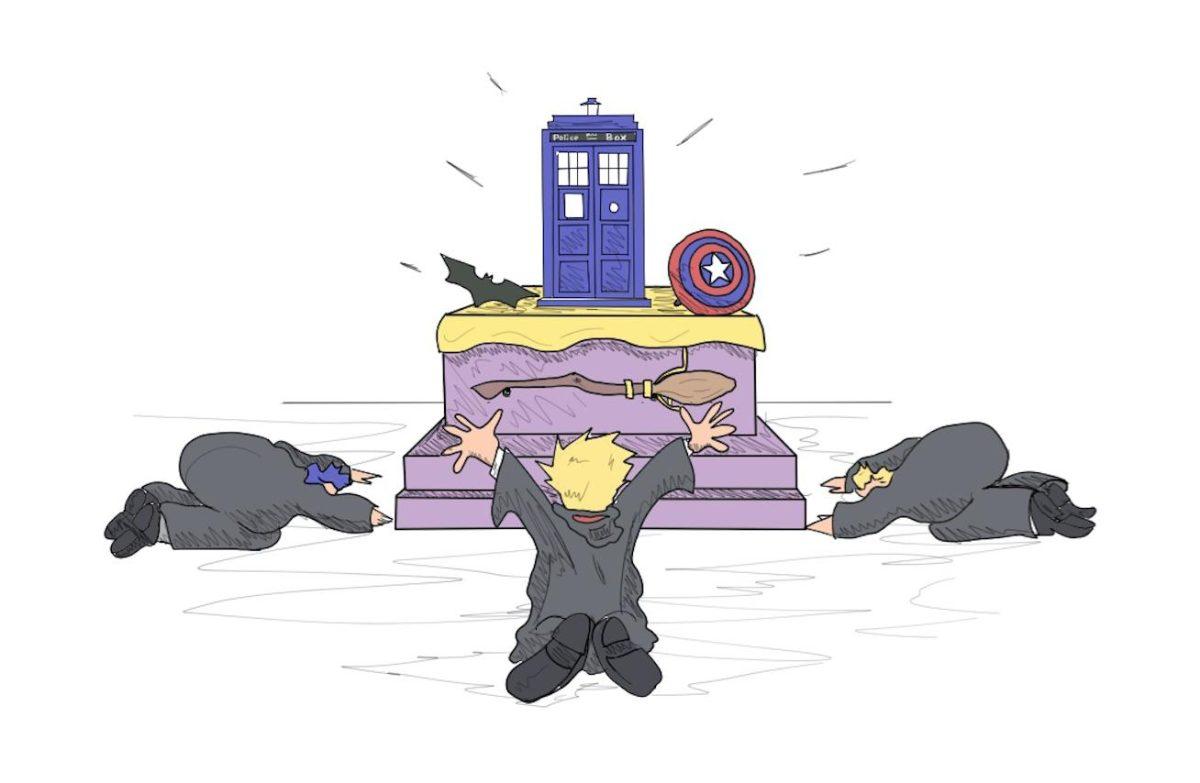Merriam-Webster defines the word “fandom” as simply “all the fans” of a particular thing. In the broadest sense, such a weak definition suffices. However, it would be foolish to stop there and end the discussion.
In the postmodern age of social media and the internet, fandoms have space to grow. Out of this space comes the vitriolic, trash-filled fandoms dominating the internet.
Safe spaces for fans to discuss and enjoy their favorite film, novel or television show are not bad ideas. In fact, using the internet to reach out to millions of people around the world who have the same interests as you is a beautiful use of current technology.
Some of these fanbases aren’t content to enjoy their product. These groups sully the good name of the others, opting to patronize others who don’t share the same interest.
The hit Adult Swim show “Rick and Morty” is a good example of fandoms gone wrong. Fans of the show run the gamut of people who casually enjoy the show to mindless reference-slingers to elite fans who hold all others in disdain.
One of the show’s leading characters, the eponymous Rick, is a cynic, nihilistic and careless alcoholic. He is also a “supergenius” and often used to explore themes of theoretical science and philosophy.
Many fans try to emulate Rick. These fans fail to live up to Rick’s genius, but somehow manage to outdo him in the other categories. The ones who aren’t committed to becoming discount Ricks are satisfied with constantly spitting out reference like they have nothing better to do. Fans like these disincentive others from trying out the show.
The undying “Harry Potter” fandom tells another frightening tale. The story of the young “everyman” working his way through situations both magical and mundane while navigating puberty and high school appealed to all of us growing up alongside the titular Potter.
The problem lies with the same fans who, seven years on, remain obsessed with the coming-of-age story made for kids aged 11 to 17. College students continue to shove their favorite arcane adventure down the throats of anyone around, often to the detriment of everyone involved.
Financially backing the series, discussing it with friends and sharing the franchise with your kids is a healthy and reasonable way to enjoy the product. Obsessing over and judging people for their “Harry Potter house” is not.
We’re coming to a point where fandoms aren’t only hurting the fans and anyone unfortunate enough to interact with them. They’re starting to affect our media.
The special snowflake breeding ground Tumblr is a wasteland run by young extreme leftist girls who seem to have the distinct inability to produce intelligent thought.
A quick browse through Tumblr betrays the site’s true nature: belligerent liberals sit in their bubbles filtering out dissent and filtering in content that agrees with them.
However, the content often doesn’t agree with them. Television shows that they claim to love and watch religiously are dominated by “ships.” “Ships” contains two characters, often both male, in a romantic relationship not explicated in the show.
Tumblr fandoms are often reduced to simple porn. As ridiculous as it is, it’s okay. What isn’t okay is the effect the site has on media.
Film and television producers seem to look to Tumblr as “the youth,” a comprehensive site of all things young people are interested in. With the incredibly biased and vapid data gathered, they tailor their product toward this demographic.
“Star Wars” is a beloved franchise that speaks to everyone because the values in the story are universal. “The Hero’s Journey,” the classic tale of a relative nobody overcoming impossible odds and becoming a hero, is something everyone can understand and rally around. The farm boy defeating the evil empire and redeeming his lost rival excites all of us because it is something everyone can appreciate.
The newest film’s portrayal of purple-haired women leading armies and men who are either incompetent or irredeemably evil aren’t universal. They’re isolating to fans of the original stories.
The medium is too political, and it follows the politics of Tumblr users who idolize the would-be relationship between an evil abusive man, and a lost insecure woman because they’re both attractive.
Tumblr doesn’t represent everyone. Fans of “Doctor Who” aren’t characterized by which Doctor they think is the most attractive. Superhero fans aren’t concerned about the perceived romantic chemistry between Batman and Superman. “Star Wars” fans don’t hate men.
Beloved or not, all franchises we know and love are made with the intention of selling tickets or subscriptions. They need money to continue, and they adapt to what we ask for. The great failure is looking toward the vocal minority who don’t have a care in the world for any art other than their cheap hand-made porn.
Kyle Richoux is a 19-year-old sociology sophomore from LaPlace, Louisiana.





